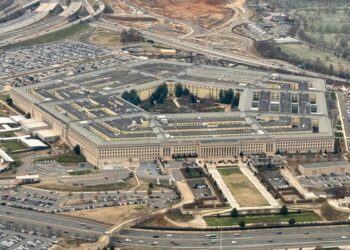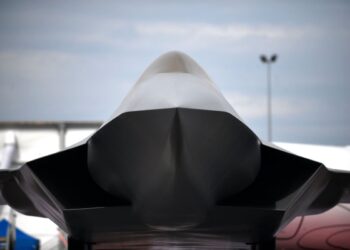Experts are expressing concerns regarding President Donald Trump’s call for the resumption of full nuclear weapons testing, which he announced via social media on October 29, 2023. This unexpected declaration has raised alarms about potentially ending the United States’ 33-year moratorium on nuclear weapons testing. Military analysts argue that such actions would not only be unnecessary and costly but also undermine global nonproliferation efforts and embolden adversaries to pursue similar testing as a means of intimidation.
In his post on TruthSocial, Trump stated, “Because of other countries testing programs, I have instructed the Department of War to start testing our Nuclear Weapons on an equal basis,” indicating that the process would begin immediately. The Pentagon’s public affairs office cited comments from Defense Secretary Pete Hegseth, made during an October 31 trip to Malaysia, where he suggested that nuclear testing is a responsible measure to ensure America maintains a robust nuclear arsenal and thus upholds peace through strength.
Hegseth mentioned the importance of having a credible nuclear deterrent, and he noted that military efforts would collaborate with the Energy Department on issues related to testing. On November 2, Energy Secretary Chris Wright clarified that while tests would focus on subsystems of new nuclear weapons, these would not involve full nuclear detonations. He referred to them as non-critical explosions, emphasizing that they are designed to ensure the functioning and delivery of nuclear devices without triggering a nuclear event.
The historical context of U.S. nuclear testing reveals that the country conducted 1,054 nuclear tests over nearly five decades, with the last underground detonation, known as “Divider,” occurring in September 1992. Following that, both President George H.W. Bush and President Bill Clinton instituted a moratorium on nuclear testing, partly in response to a growing global movement against it. Analysts insist that this moratorium helped the U.S. maintain a strategic advantage in nuclear knowledge, as it had already executed a substantial number of tests, allowing for reliance on computer simulations to verify weapon efficacy without further testing.
Experts such as John Erath from the Center for Arms Control and Non-Proliferation warn that breaking the long-held taboo on nuclear testing could prompt other nations, particularly Russia and China, to follow suit, ultimately diminishing the United States’ competitive edge in nuclear capability. This aligns with Trump’s unfounded claims that both China and Russia are conducting clandestine nuclear tests. Chinese officials have refuted these claims, insisting that the country has committed to suspending nuclear testing.
In contrast, the only nation known to have conducted nuclear tests in the 21st century is North Korea, which performed underground detonations from 2006 to 2017. Reports indicate that Russia has successfully tested a cruise missile with nuclear propulsion capabilities, although experts debate the relevance and effectiveness of such technological advances.
Erath further elaborated that if the U.S. were to proceed with full nuclear tests, it would likely minimize environmental impacts by conducting them underground, yet the diplomatic repercussions could be severe. He indicated that the testing would lead to widespread condemnation and exacerbate existing tensions with international partners.
Experts point out that the logistical challenges and costs associated with revitalizing nuclear test facilities would be significant. Many existing infrastructures are outdated and require substantial investment to be operational again, potentially costing upwards of a billion dollars. Consequently, there are apprehensions that funds allocated for modernization of the nuclear arsenal could detract from overall military readiness.
Erath noted that in the wake of Trump’s announcement, the rapid spread of commentary and concern highlights the sensitive nature of nuclear policy, emphasizing the need for careful communication to maintain confidence among allies regarding U.S. commitments. The overarching apprehension is that any shift toward nuclear testing could entrench a cycle of proliferation, wherein other nations feel compelled to advance their own nuclear programs in response.













